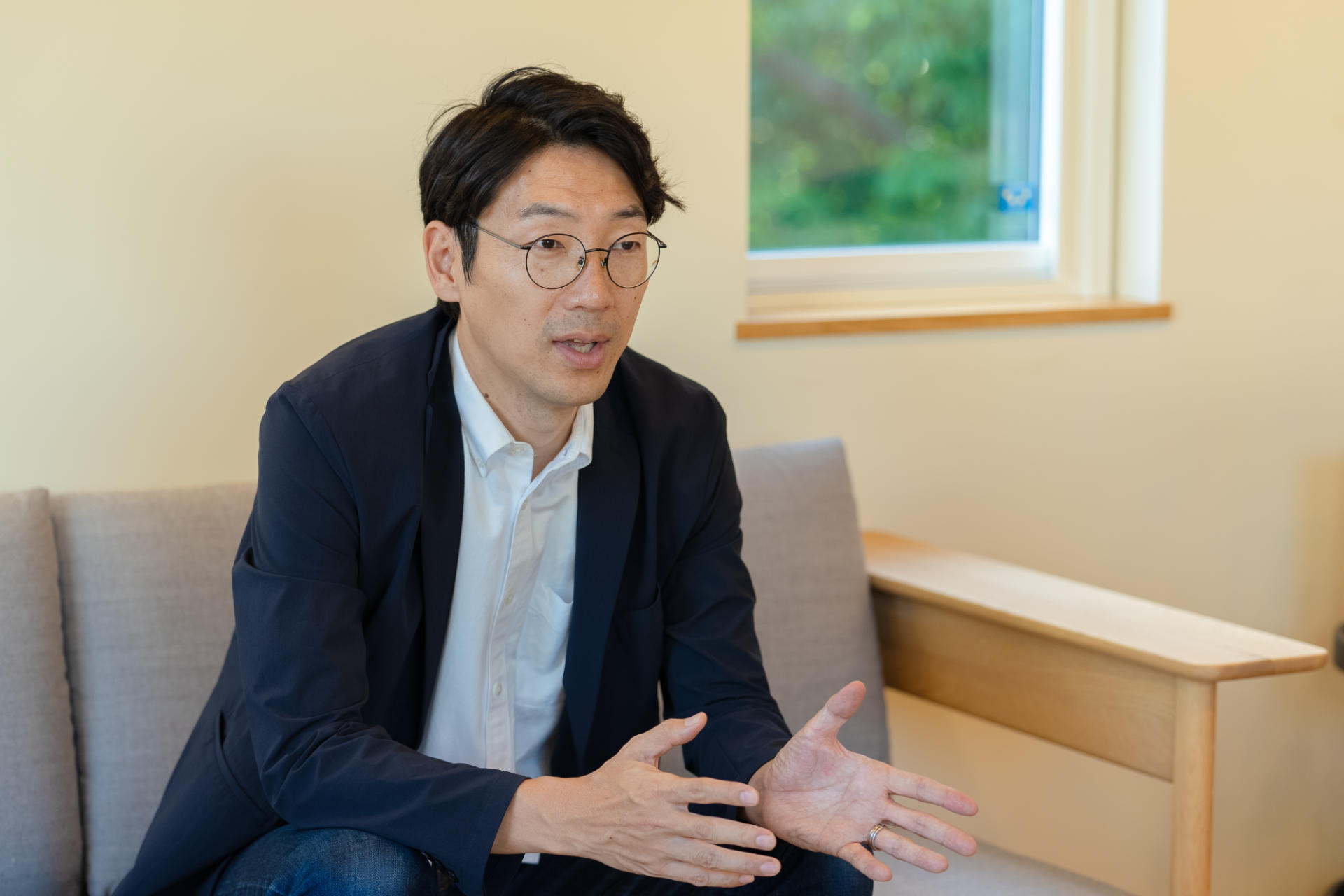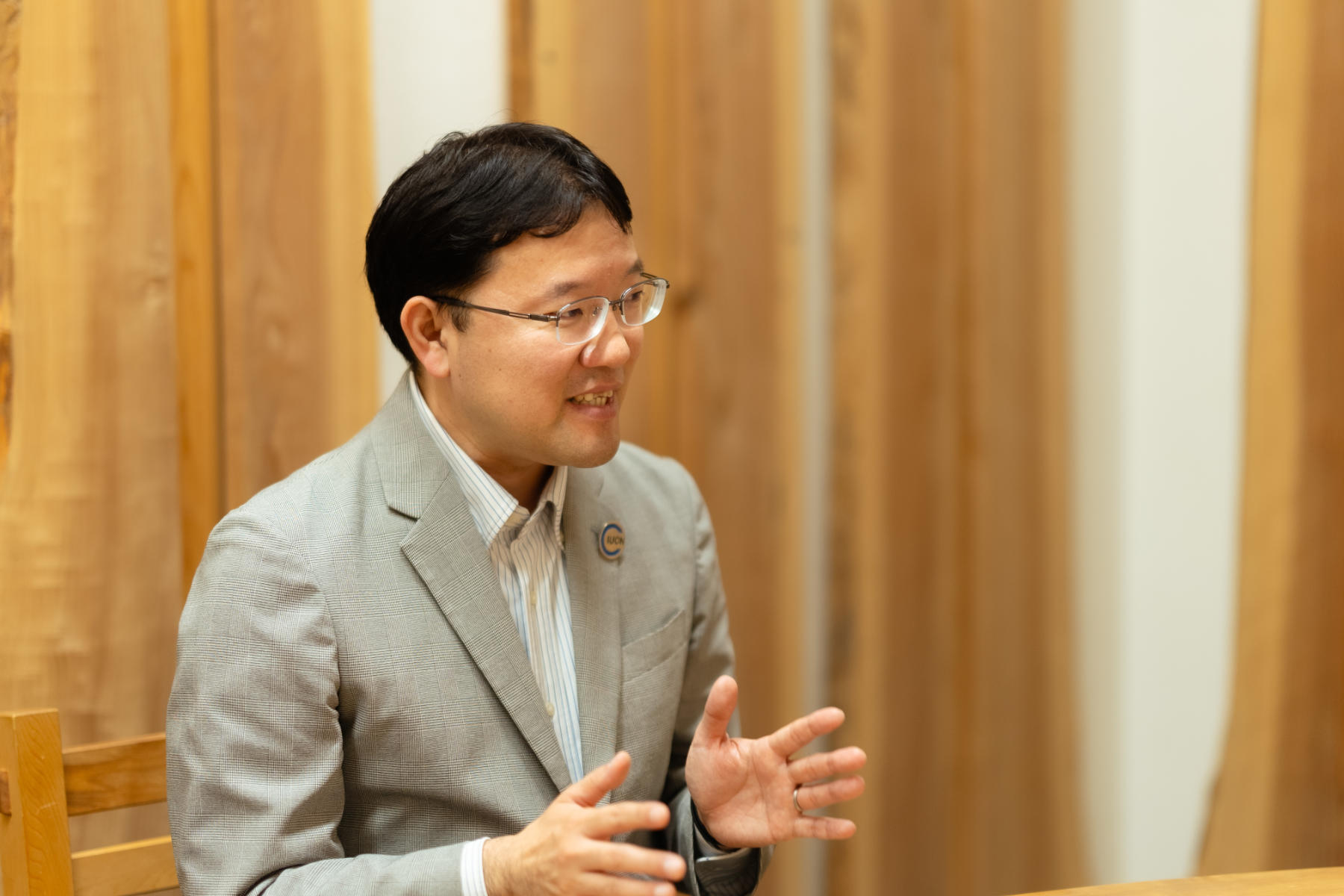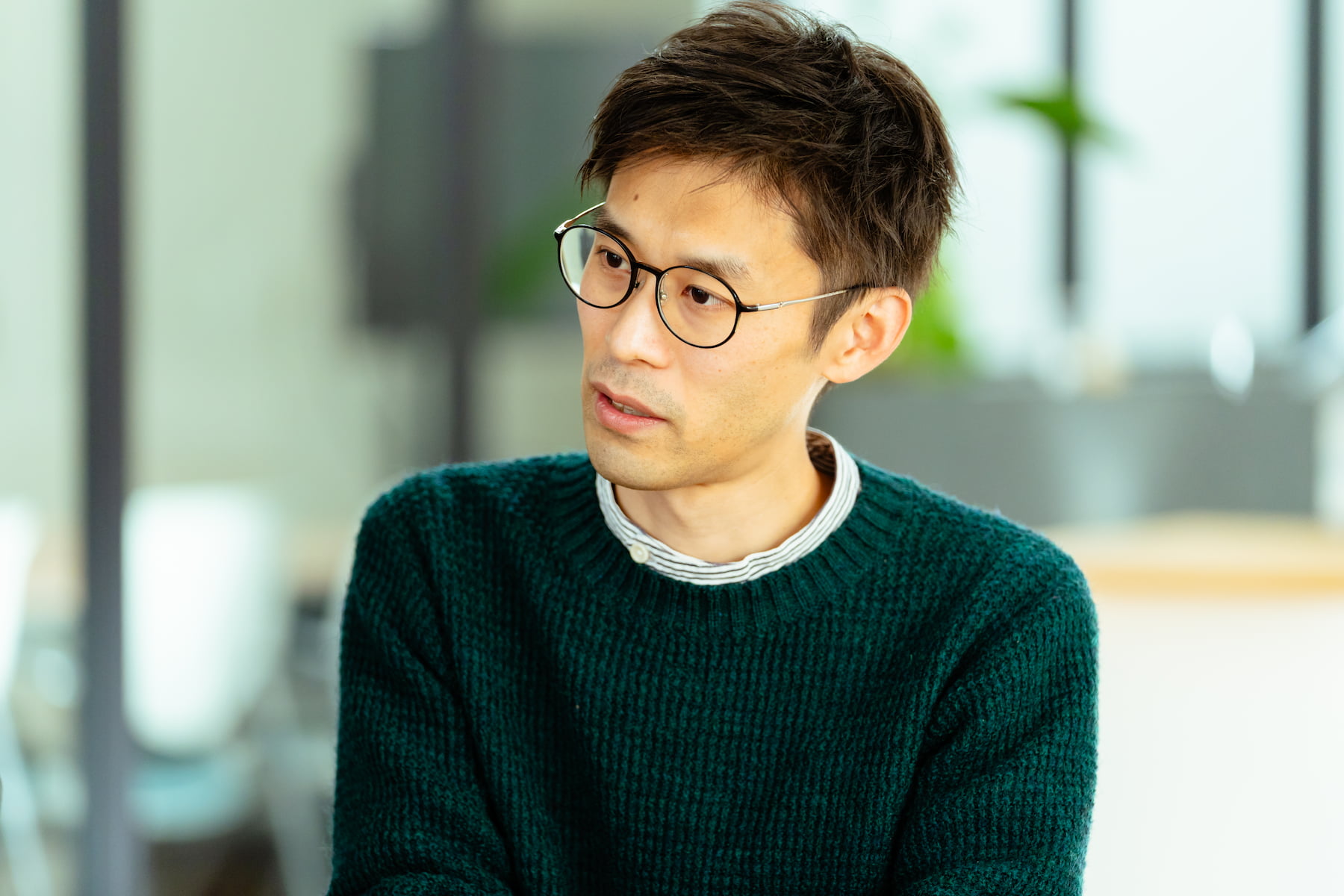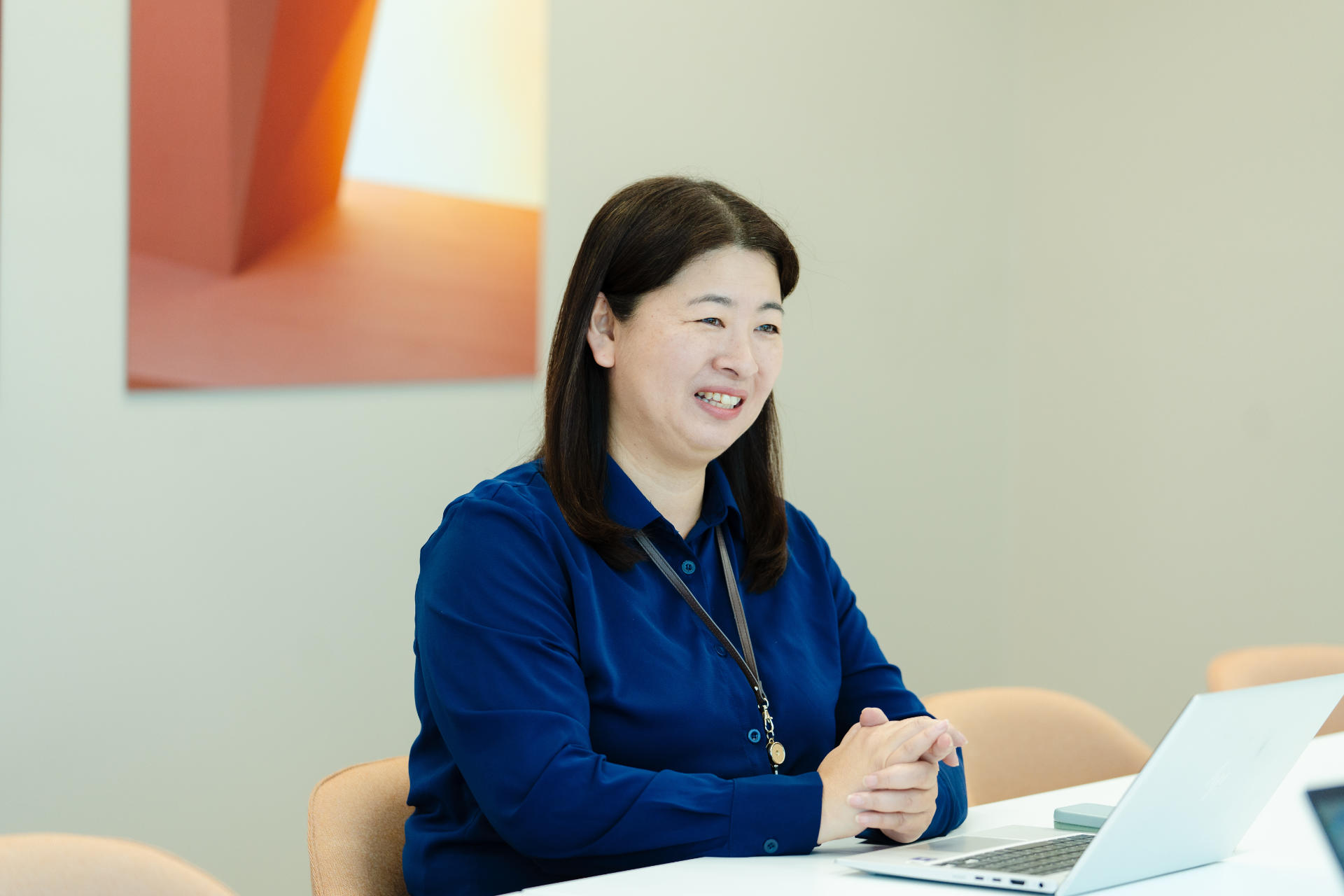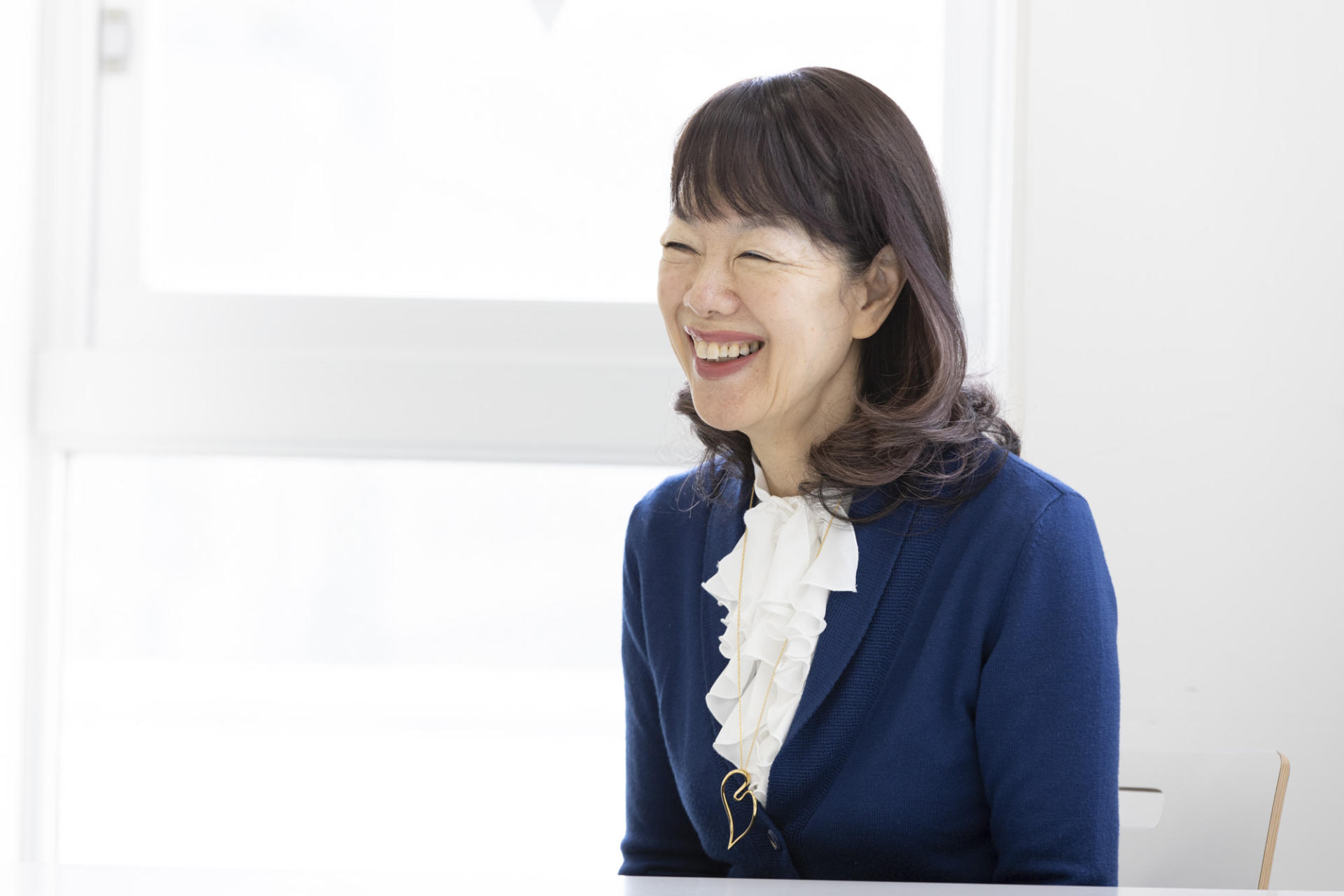CASE 40
happiness (non-profit organization)
(April 2023 – March 2024)
A supportive presence, shining a light on small organizations dealing earnestly with social issues.
"Happiness" was born from a desire to give people at all stages of life a place where they belong—a "third place," outside of home or work. It started with a children's cafeteria, but soon expanded to a community café, where people of all ages can feel at home. After that came a broader range of services, including assistance for girls that, for various reasons, can't return home. Happiness sought to better communicate its ideals, and increase its level of support. After a consultation with Hitoshizuku, we began working with them on the organization's direction, operation, and information management, with regard to its ideals and activities. We also partnered with Seitaro Design to develop a website. We asked Happiness for their realizations during this process, and for their impressions of Hitoshizuku.
A website is a pillar of PR. We didn’t hesitate to consult with Hitoshizuku, who have a deep understanding of our organization.
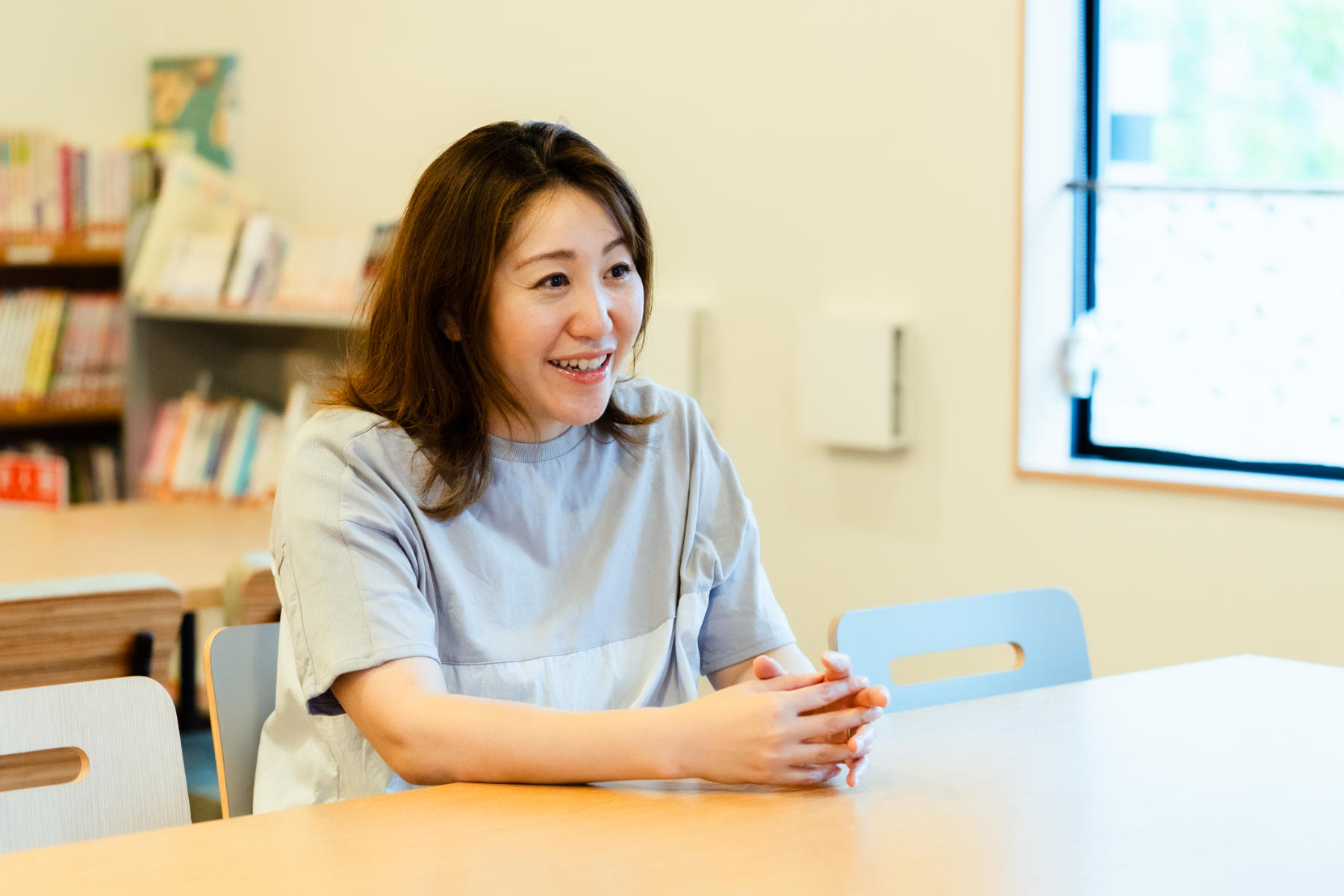
Sayaka Uno, Director, happiness
Risa Wakana, Hitoshizuku (Wakana):
Since 2022, we’ve supported the Nippon Foundation’s “Children’s 3rd Place” program. That’s how we encountered “Happiness,” and from April 2023 we helped you to create a website, and offered other support. I was very pleased that you reached out to us, after we worked together for the Nippon Foundation. What challenges were you facing at the time?
Sayaka Uno, happiness (Uno):
In 2016, we launched this non-profit organization, and began operating a children’s cafeteria in Kyoto. I know from personal experience how difficult it is to raise children while holding down a job. In modern times we’ve seen a rise in nuclear families and dual-income households; parents are more isolated. It’s difficult for children and guardians to seek assistance. We felt a sense of crisis, and we wanted to make things easier by providing a place for them.
Wakana:
You went on to implement many different projects.
Uno:
Yes. The children’s cafeteria gave us the opportunity to communicate with the locals. We realized that people at all stages of life need a third place, so we set up the “Happiness Café”—a facility that makes anyone in the community feel at home. We also established “Happiness House,” which gives housing and support to girls that, for various reasons, can’t return home.
Wakana:
As you were expanding your activities, what difficulties did you experience?
Uno:
In order to help those who truly need a third place, and increase our number of supporters, we knew that we needed an online presence. In 2022, the Nippon Foundation’s “Children’s 3rd Place” project taught us how to develop a PR plan, and gave us other fundamental knowledge. After a year of assistance, we reached the point where we were sending out information on our own, but we worried that it wasn’t enough.
Since the beginning, we’ve been running a website, and a blog about the children’s cafeteria. But they didn’t seem to be working very well.
Wakana:
What made you think that?
Uno:
A lot of people looked at the cafeteria’s blog, but our organization’s website didn’t get many viewers. We felt that we weren’t successfully communicating information about Happiness’ goals and activities, outside of the cafeteria—such as Happiness Café and Happiness House. We wanted to create a unified blog and website, but didn’t know where to start.
Wakana:
While wrestling with those issues, you contacted Hitoshizuku. What were your expectations?
Uno:
As part of the Nippon Foundation’s “Children’s 3rd Place” project, you gave PR support to multiple organizations running third places. When I spoke to you directly, you listened carefully, then gave us informed advice on conducting PR for the entire enterprise, not just for the children’s cafeteria. That left quite an impression.
To create a new website for Happiness, it’s necessary to understand the whole organization. We already had a relationship with Hitoshizuku, and we know we can rely on you. We didn’t hesitate to ask. You don’t specialize in website production, but you told us you’d introduce us to design experts. It was very reassuring.
A supportive presence, shining a light on small organizations dealing earnestly with social issues.
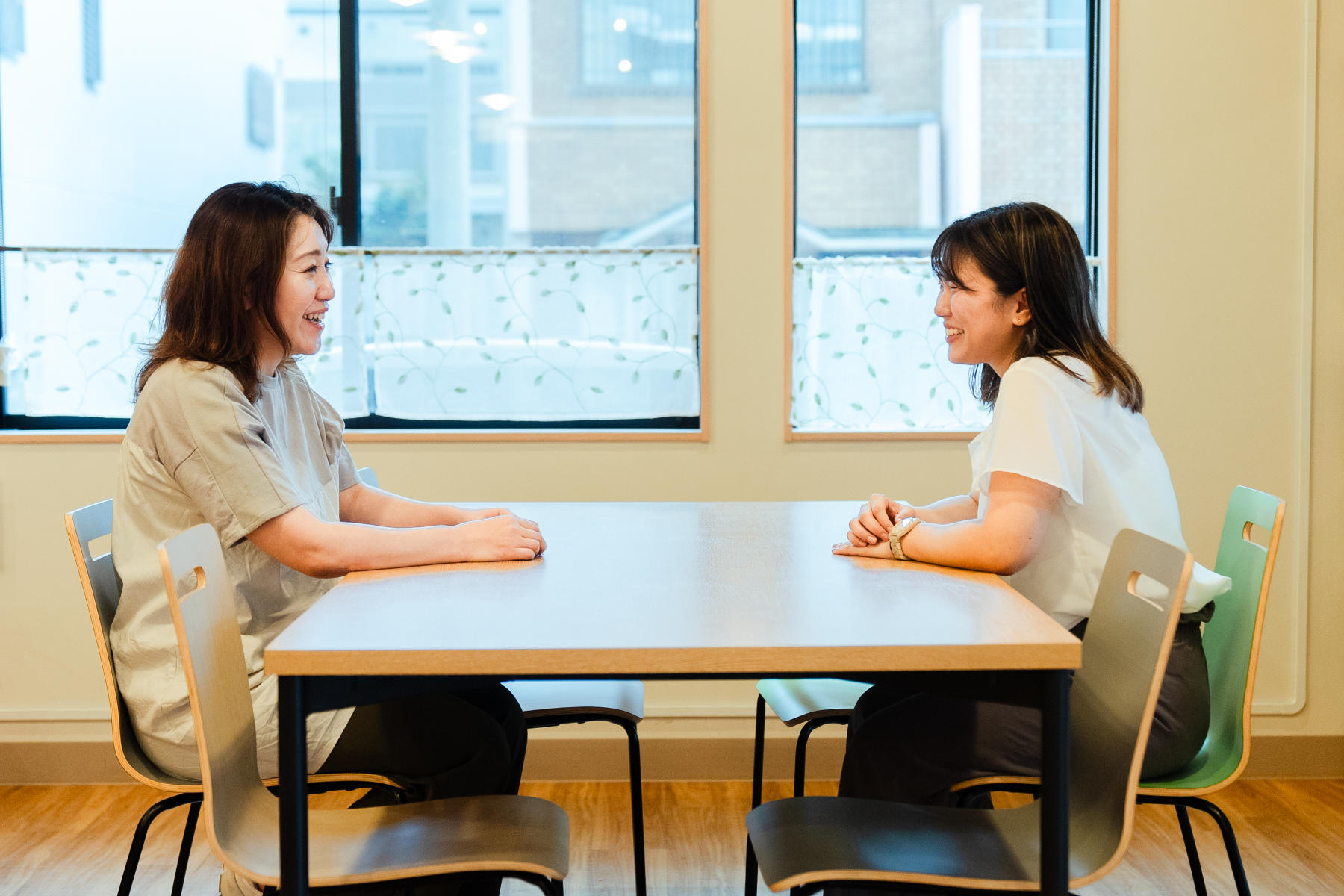
Left: Uno, happiness Right: Wakana, Hitoshizuku
Wakana:
In collaboration with Seitaro Design, we started by putting your thoughts and activities into words. We also asked what kind of support you wanted to encourage, and together with a fundraising expert, we made a plan. What do you think of the finished site?
Happiness’ website: https://happiness-world.jp/
Uno:
It’s wonderful; we’re very grateful. The response has been good too. We’ve had lots of compliments, which inspire us to conduct the kind of activities worthy of such a nice website.
Wakana:
I’m glad you’re satisfied. Everyone at Happiness gets involved; you’re enthusiastic, and you each have your own passions. I think the website reflects your wonderful personalities. What was the most difficult part of the process?
Uno:
The hardest part was putting our thoughts into words. Before production began, Seitaro Design came to see us. We talked about all sorts of things, and they said, “Instead of using catchy words and images, let’s make it so that the more you read it, the deeper your understanding becomes.” It took a long time to write out our feelings. But I think that the resulting page gets more flavorsome the longer you chew on it.
Wakana:
Happiness’ philosophy is that we can’t live alone; we should forgive, pass favors on to future generations, and build our future through a cycle of gratitude. Those words contain a warmth that exemplifies you perfectly. It made a big impression on me.
Uno:
Thank you very much.
Wakana:
Since the website was published, have there been any changes within Happiness?
Uno:
The biggest change is that we were able to organize our ideals. During the production process, we got together, and each of our members explained why they’d got involved with Happiness’ activities. As I heard everyone else’s motivations, I reexamined my own feelings. It was a very stimulating experience. We acknowledged a shared understanding, and confirmed that we were all moving in the same direction. It became clear that the regular reaffirmation of each other’s feelings is very important.
My own comments during that group meeting are now up on the website, and whenever I read them, it reminds me of where I came from. The production process was extremely hard, and very time-consuming. I’m sure that put a burden on you, but you always offered kindness and encouragement. We’re very grateful.
Wakana:
I’m thankful that we were able to work together. Over the course of that time, has your impression of Hitoshizuku changed?
Uno:
When I met your CEO, Kokubo, I realized that you’re very different to my preconceived notion of a “PR company.” I thought you’d ruthlessly keep to schedule, pulling us along with you.
Wakana:
And in fact?
Uno:
You watched over us with a quiet warmth, helping us move in the right direction. In meetings, we often veer off track, and end up talking nonsense! But Kokubo didn’t stop us. He’d watch, quietly. Sometimes, to my surprise, he’d even join in. And I noticed that he’d manage to lead the conversation back to its original topic.
Wakana:
The monthly meetings often ran long. People got carried away, didn’t they?
Uno:
Absolutely. But I really valued that time. Amidst the chatter, I’d recall something I wanted to ask about. It helped us to verbalize our problems. So it was very helpful that you understood that, and stuck with us when it ran late.
Wakana:
During the conversation, we’d often come up with new ideas. I always had a good time.
Uno:
You listened, and came to understand us. We knew we could rely on you, and that feeling persisted throughout. NPOs like ourselves generally don’t have a large PR budget. Hitoshizuku’s website says that you give “logistical support to individuals and organizations earnestly tackling social issues.” We consulted you about the budget, and we were able to make things happen. I’m truly delighted and grateful that our external partners care about what we do.
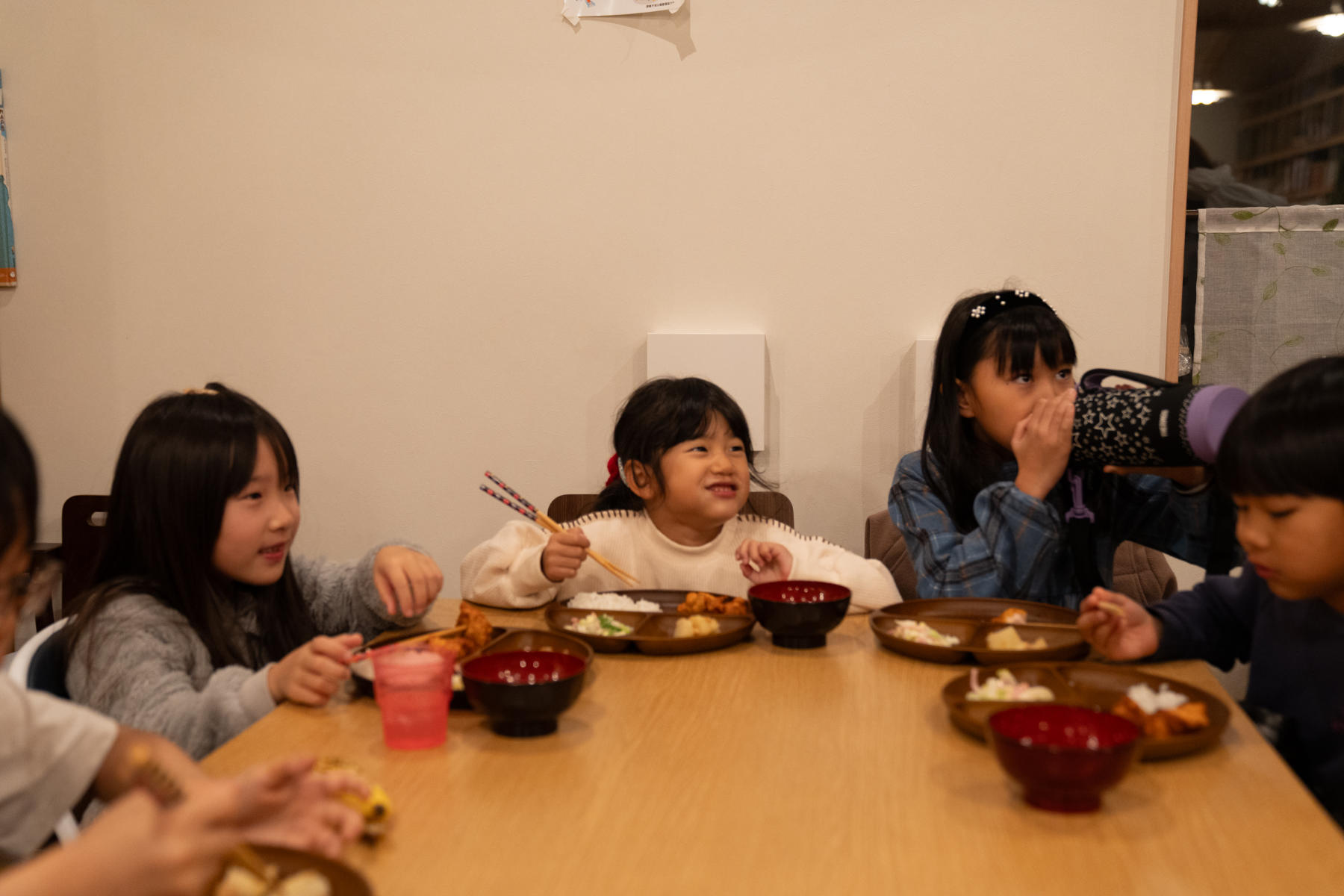
The children’s cafeteria
We were able to put our thoughts in words, create empathy for the future, and take a step forward.
Wakana:
Did Hitoshizuku’s support lead to any new realizations?
Uno:
We’d been working hard on our blog, and on social media, but we didn’t have a clue how to get as many viewers as possible, or how to interact with the media. Now, we’ve learned specific methods, so we’re doing it ourselves to an extent. We didn’t know how to get media coverage; we thought it was a matter of waiting for them to get in touch. But as it turns out, that isn’t the case. Even if our content isn’t picked up by the media, you taught us that it’s important to keep communicating our message. So even after you finished supporting us, we’ve continued to work on it.
Wakana:
Rather than offering temporary support, we wanted to create a foundation for the future. I’m glad to hear that it’s producing results! Have there been any other responses to the website?
Uno:
After reiterating the future we’re aiming for, other operators of children’s cafeterias told us they want to adopt those goals themselves. For us, that’s very encouraging.
Also, I sometimes give lectures, at universities and elsewhere. When I do, I always tell people to look at our website. It’s become a great tool for spreading our philosophy. We’ve successfully communicated our ideal future. And even if we don’t see immediate results, it’s a big step forward.
Wakana:
We offer all sorts of PR support, but we do consider a website a vital tool for spreading awareness of individuals or organizations. The fact that you’ve had a response is, I think, a good sign.
Uno:
We’re currently recruiting staff, and every candidate has seen our website. They come to us because they share our viewpoint. That’s been a very positive change.
Wakana:
What is Happiness hoping to work on in the future?
Uno:
I see 2024 as a year for structural organization. Instead of starting new enterprises, I want to protect and grow the enterprises we already have. For that reason, I want to introduce new staff, and build an operational foundation.
I also want to work with those sympathetic to our goals, to create a fund for building third places.
Wakana:
That sounds wonderful. Hitoshizuku hope to create a PR community for NPOs and other organizations tackling social issues. I look forward to the day when we collaborate again.
Uno:
That sounds wonderful too! I’m also looking forward to working together again.
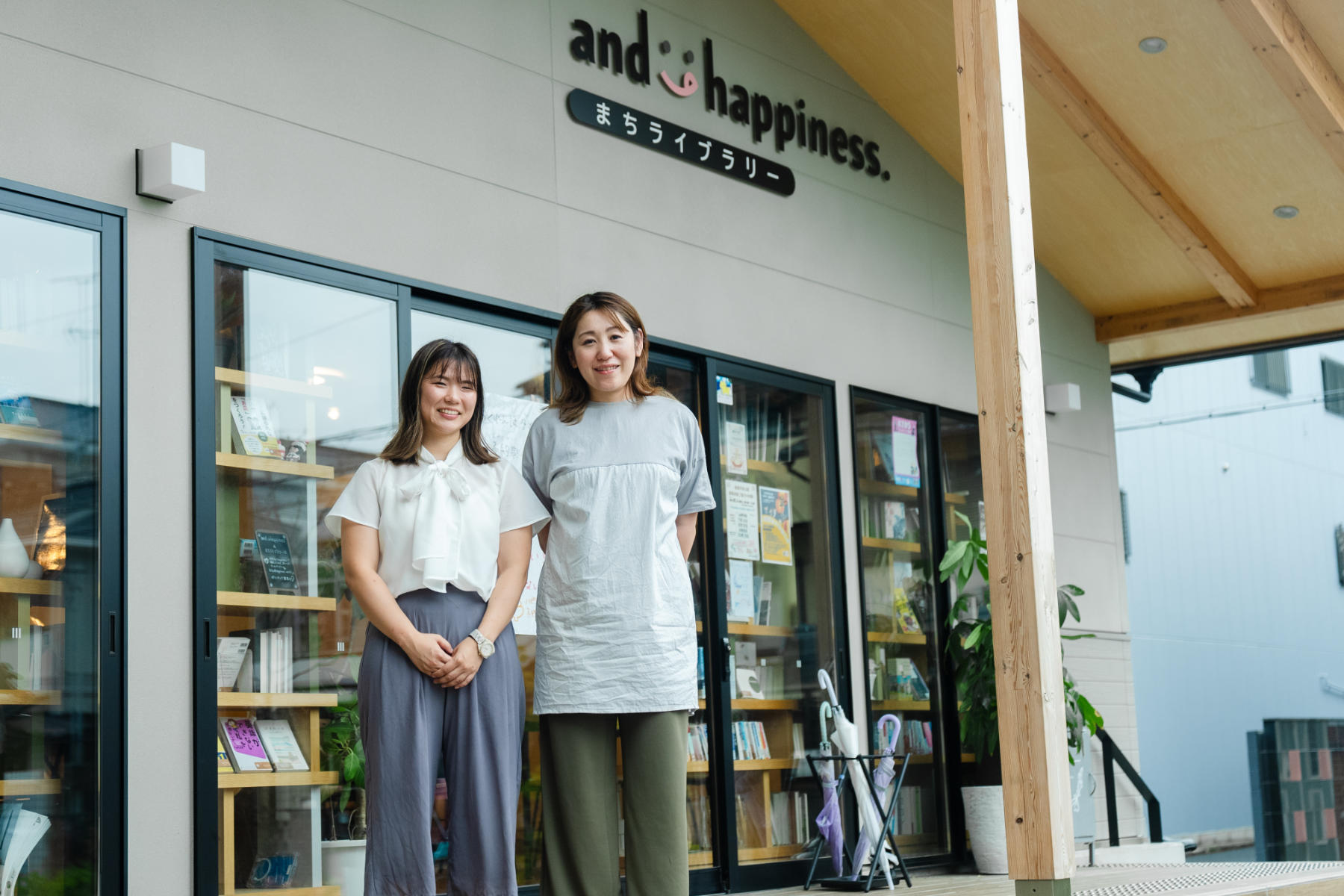
Photography: Hiroyuki Horigome
Editing: Mayuki Tsujihara
Translation Editing: Satomi Furukawa
RECENT WORKS
| Name | Hitoshizuku Inc. |
| Address | 33 Nihonodori Naka-ku Yokohama Kanagawa 231-0021 JAPAN |
| Branch | Hamacho Odawara Kanagawa 250-0004 JAPAN |
| Phone | 81 045 900 8611 |
| info@hitoshizuku.co.jp |
| President | Hiroshi Kokubo |
| Established | March 2016 |
| Capital | 3,000,000yen |
| Business | Advertising & Public Relations Agency Planning & Produciton of Social Good Projects |
| Lawyer | Junna Tei / Yokohama First Law Office |
| Tax Advisor | Satoru Motokoide / Uniques Money Advisory |
| Labor and Social Security Attorney Office Work Innovation | |

